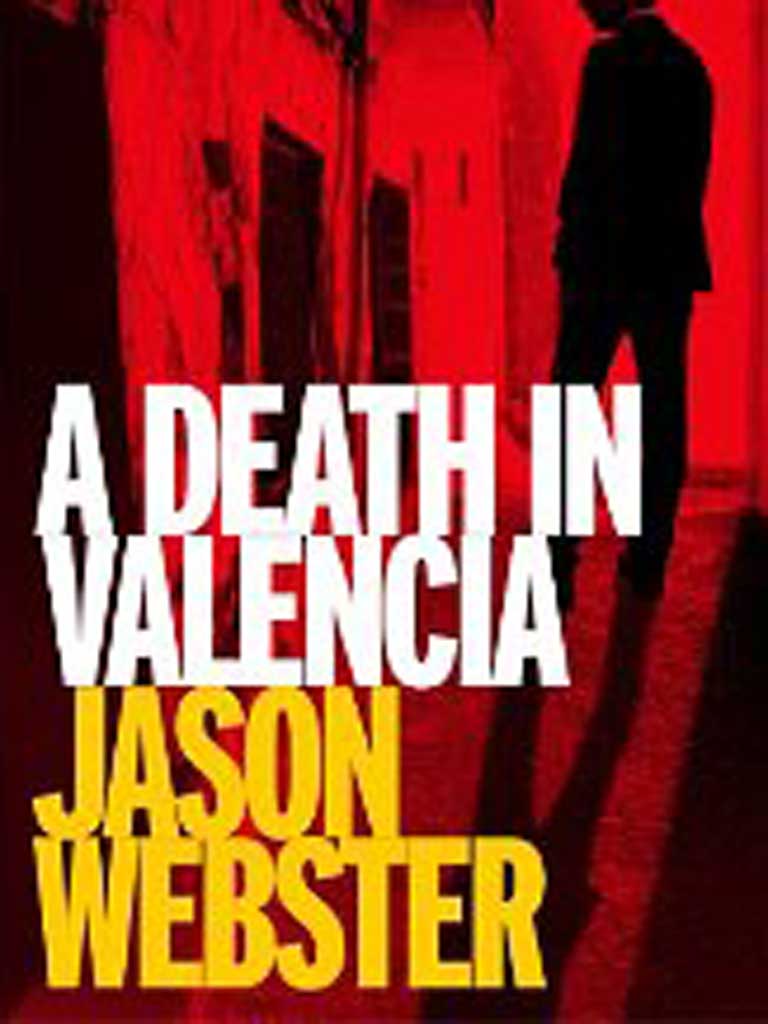
Your support helps us to tell the story
From reproductive rights to climate change to Big Tech, The Independent is on the ground when the story is developing. Whether it's investigating the financials of Elon Musk's pro-Trump PAC or producing our latest documentary, 'The A Word', which shines a light on the American women fighting for reproductive rights, we know how important it is to parse out the facts from the messaging.
At such a critical moment in US history, we need reporters on the ground. Your donation allows us to keep sending journalists to speak to both sides of the story.
The Independent is trusted by Americans across the entire political spectrum. And unlike many other quality news outlets, we choose not to lock Americans out of our reporting and analysis with paywalls. We believe quality journalism should be available to everyone, paid for by those who can afford it.
Your support makes all the difference.Jason Webster's crime fiction does not sit easily with the usual "sun'n'sangria" school of holiday reading. His Spanish detective first explored the dark side of Valencia in the fine Or the Bull Kills You. Now, Inspector Max Cámara is caught up in a web of murder and corruption after a body is washed up on the beach. It turns out to be that of a leading paella chef.
Cámara himself is the opposite of the conventional "foodie" detective who lurks in the pages of Mediterranean fiction, though the reader craving salivary stimulation will find a fascinating description of a genuine paella restaurant. He is an idiosyncratic character, living alone with thoughts that become increasingly melancholy as cracks open up both in the walls of his apartment and in his mental strength. His brooding mind focuses on the problems of his city – problems greatly increased when the Pope pays a visit and needs intensive police protection, both from the crowds of the faithful and the danger of anti-religionists.
Anti-papal rallies are (unconstitutionally) banned and the brutal language used against protesters is so violent as to evoke memories of the Civil War. Meantime, the web of civic bribery and dishonesty spreads as the head of urban development at the town hall encourages new construction, much of it dangerously shoddy. Among the administration's targets is the colourful old fishing quarter, about to disappear under tons of concrete.
This book has a profounder perception of what constitutes murder. The collapse of Cámara's own block of flats fills him with the perception that the lives of those low in the social pecking order can be thoughtlessly wrecked by those at the top. Webster does, however, bring in personal issues as well as bureaucratic crime. An abortion clinic is under attack: women are threatened and the owner is kidnapped.
All this brings Cámara and his one-time girlfriend, Alicia, together again. Alicia works for a left-wing newspaper bent on political exposure in a country where judges from Franco's fascist regime are still in post and the media are manipulated. Their perceptions of what is wrong with Spanish society form a original background to a complex thriller.
Join our commenting forum
Join thought-provoking conversations, follow other Independent readers and see their replies
Comments